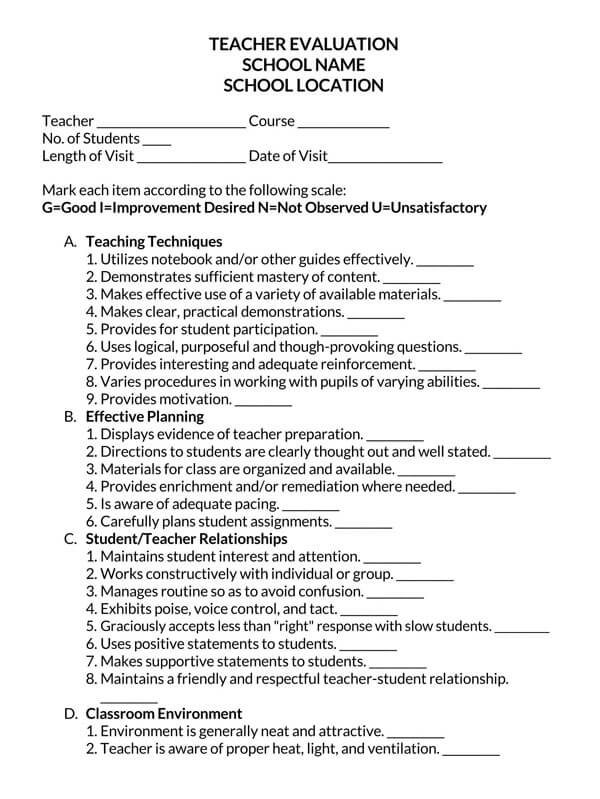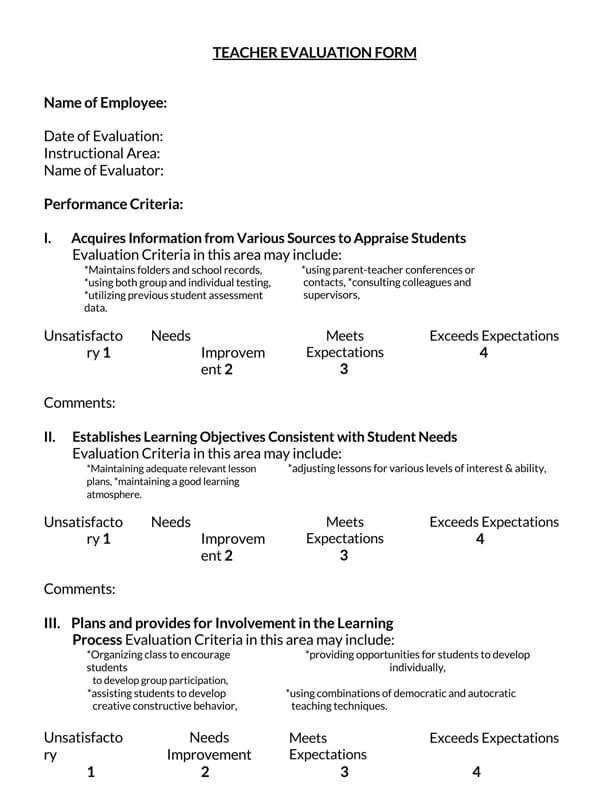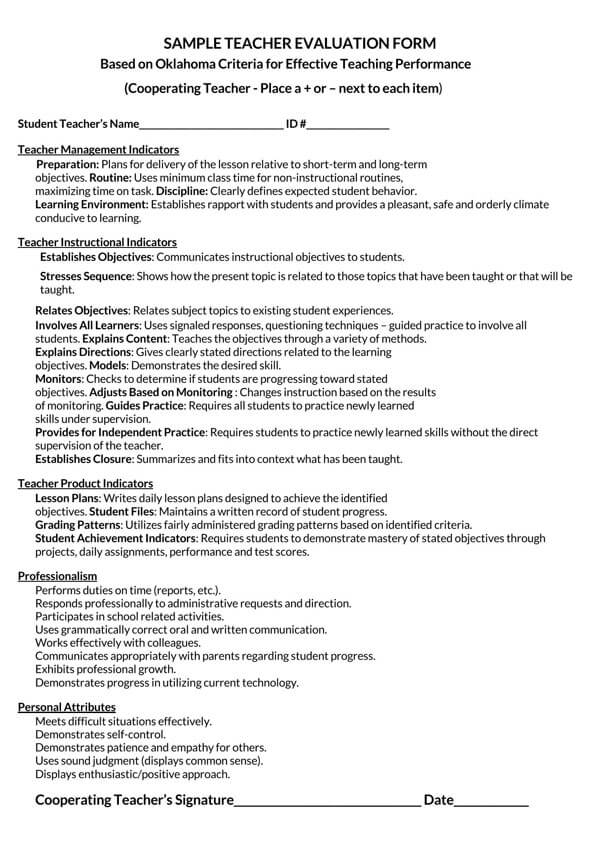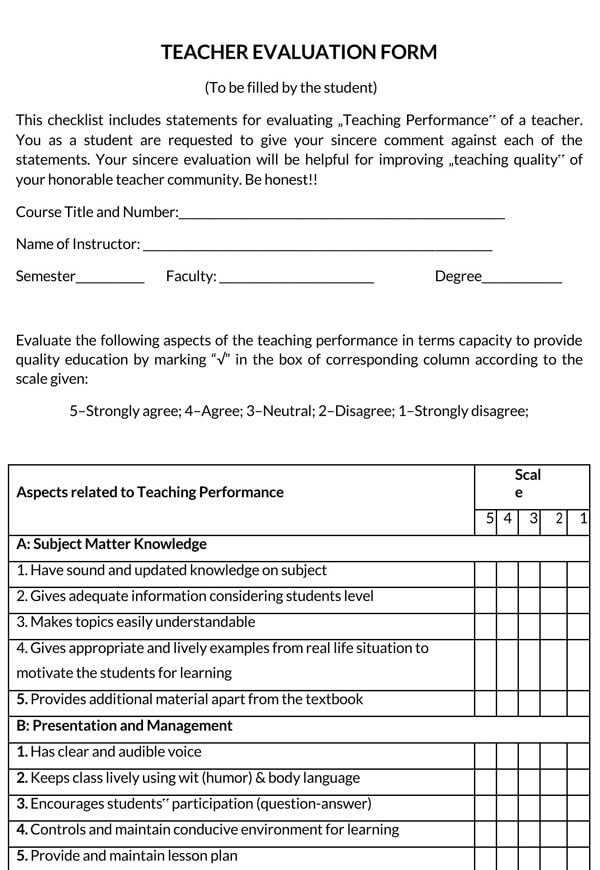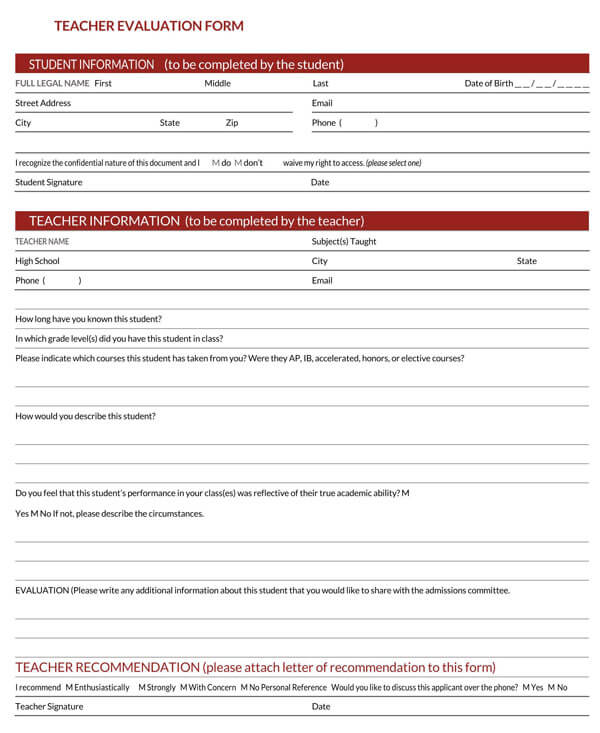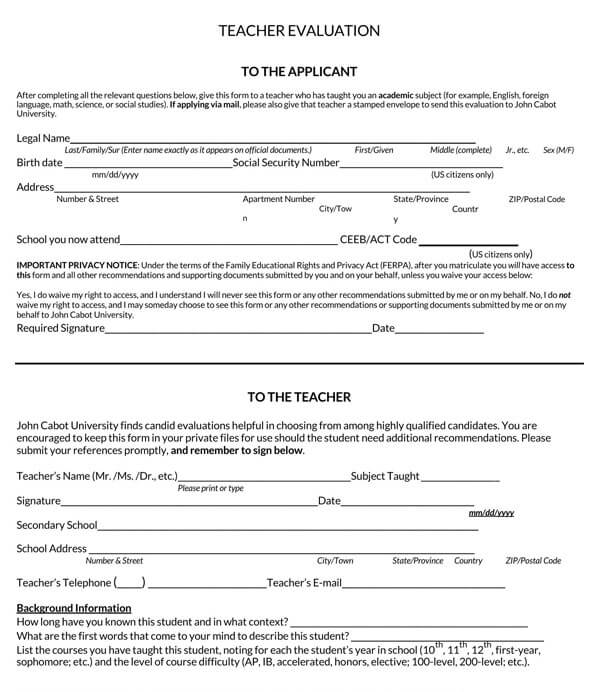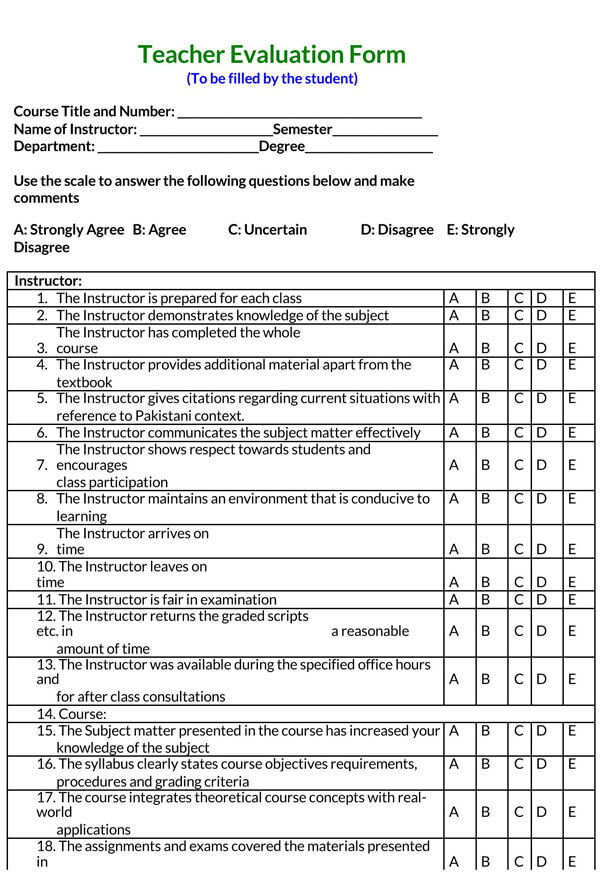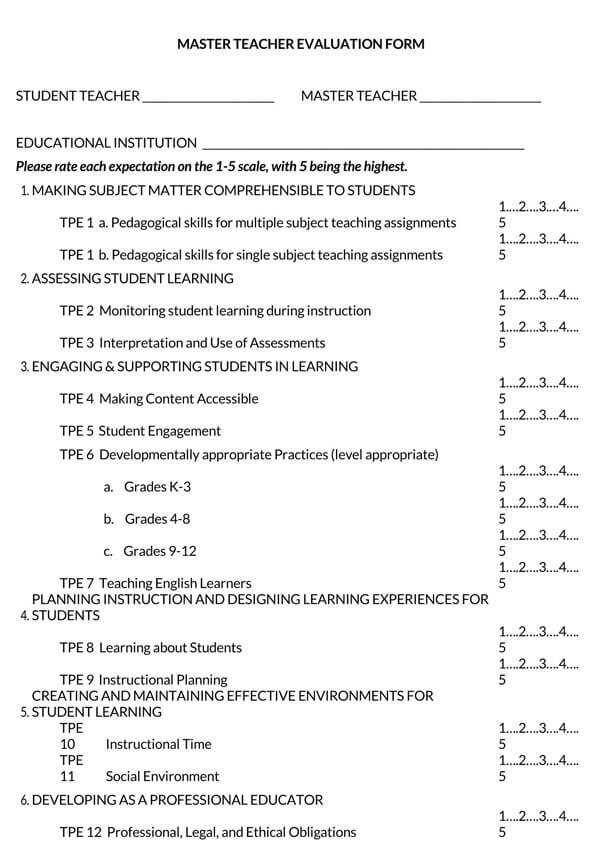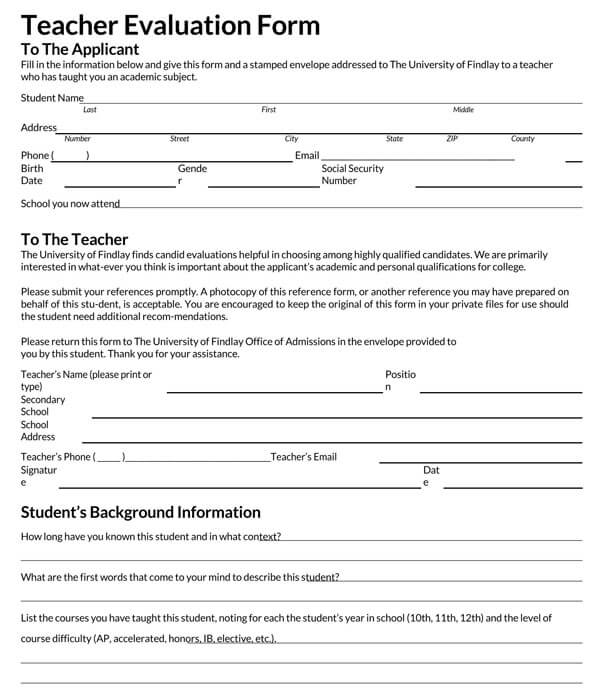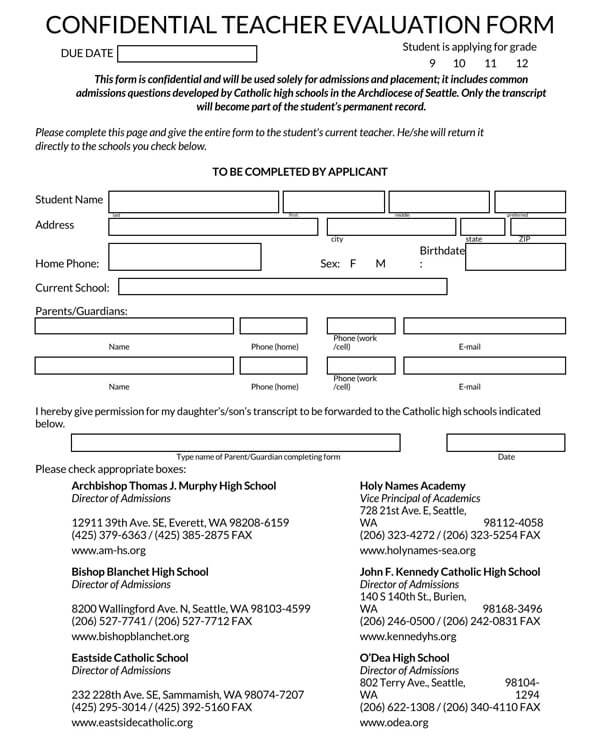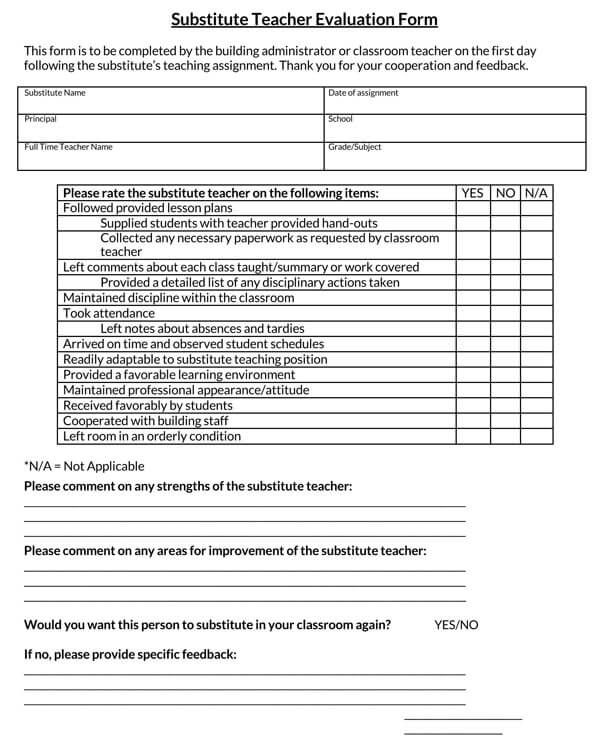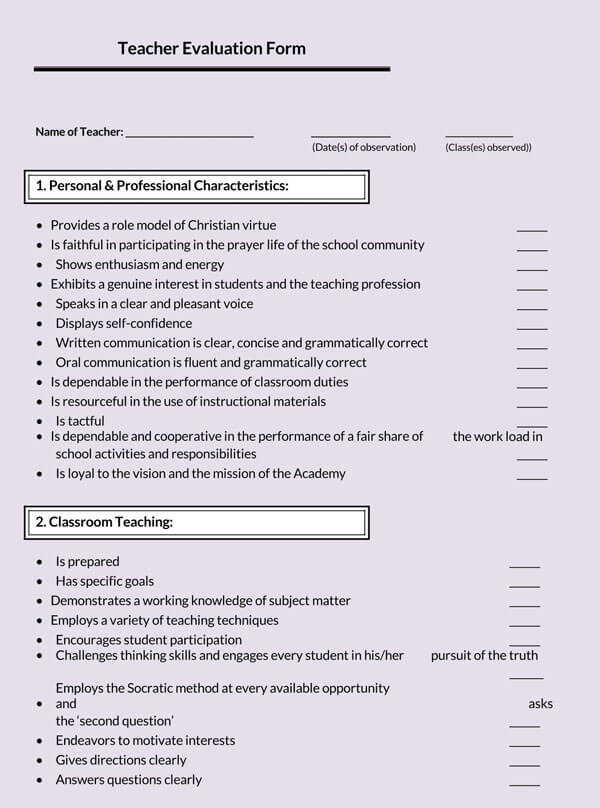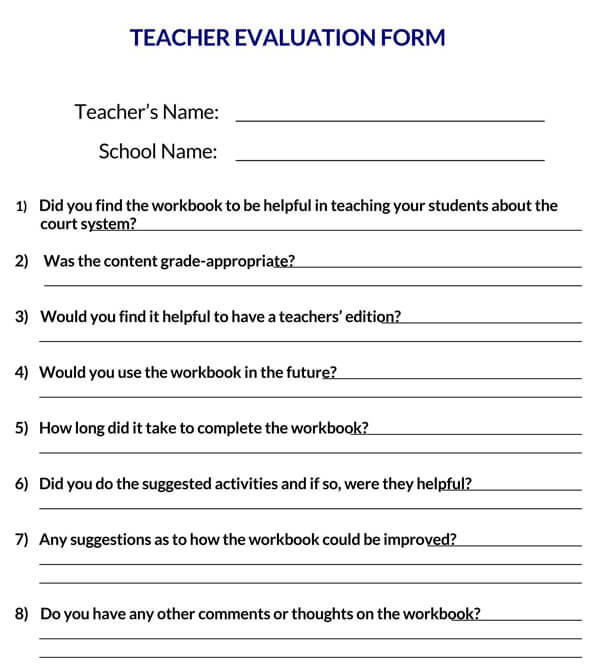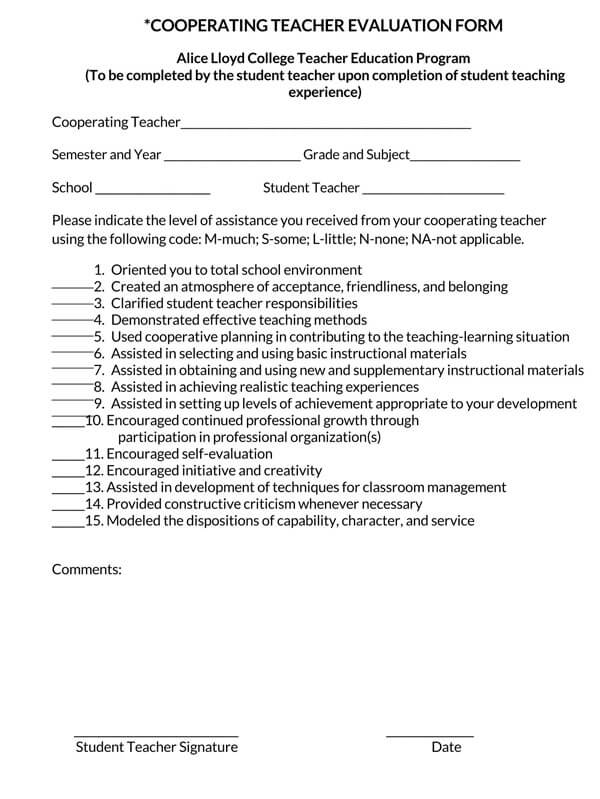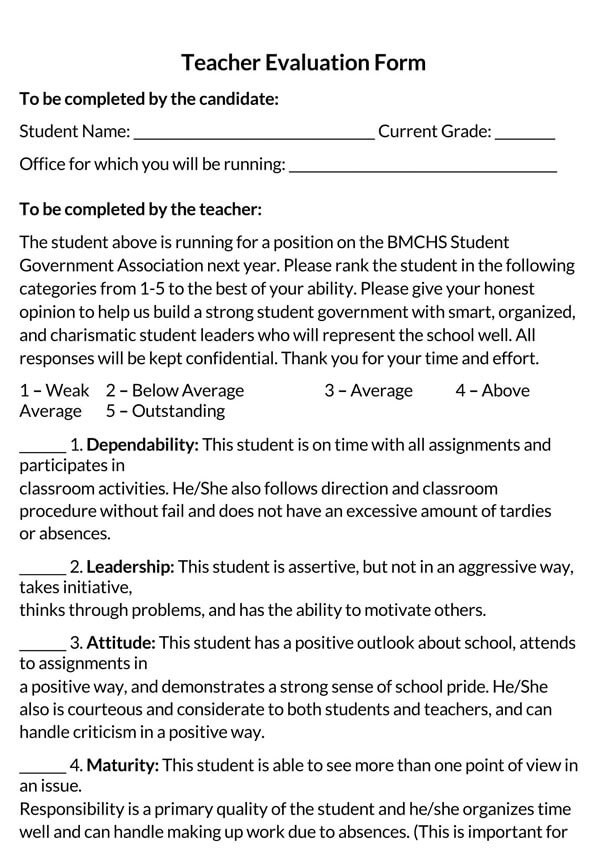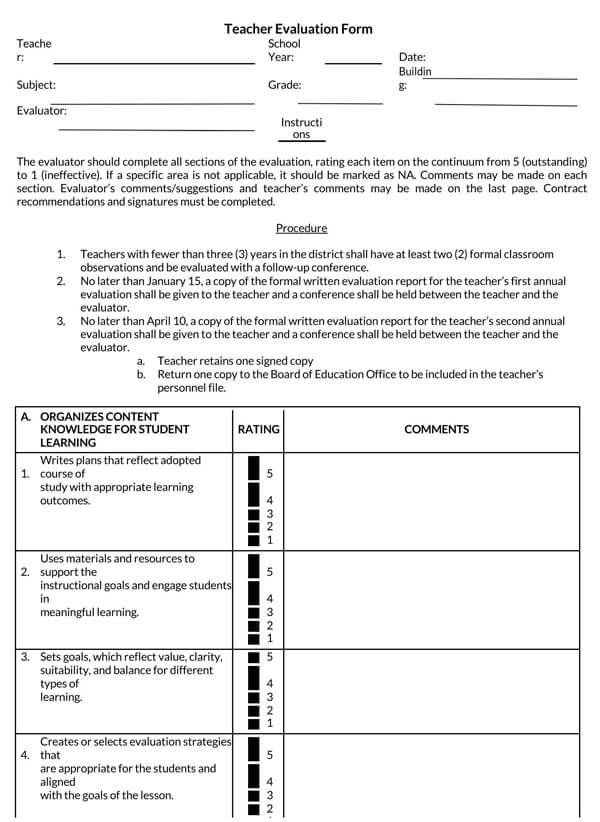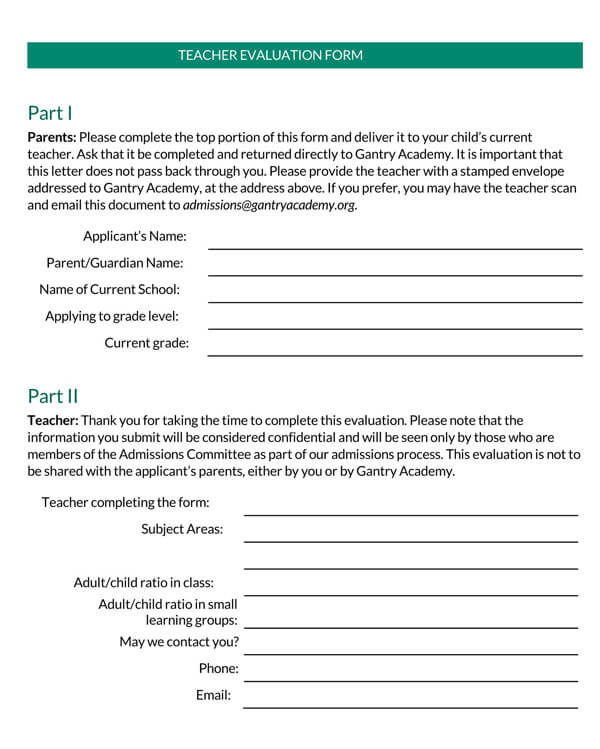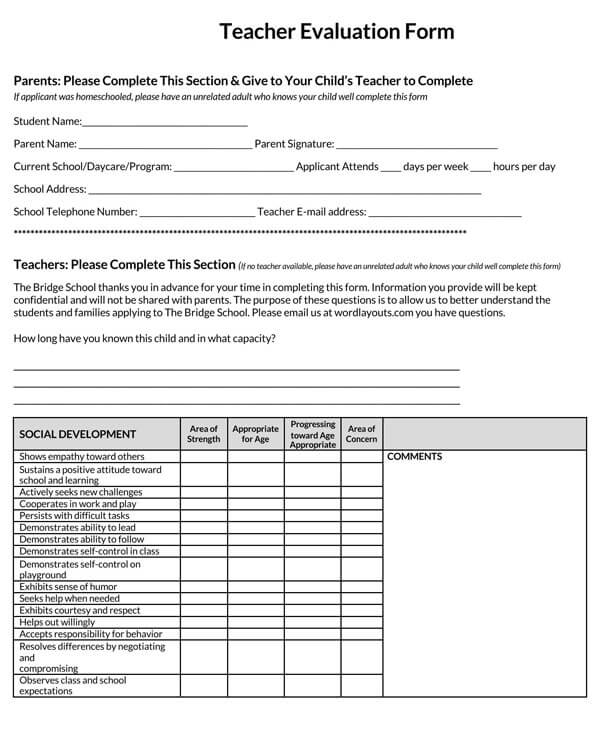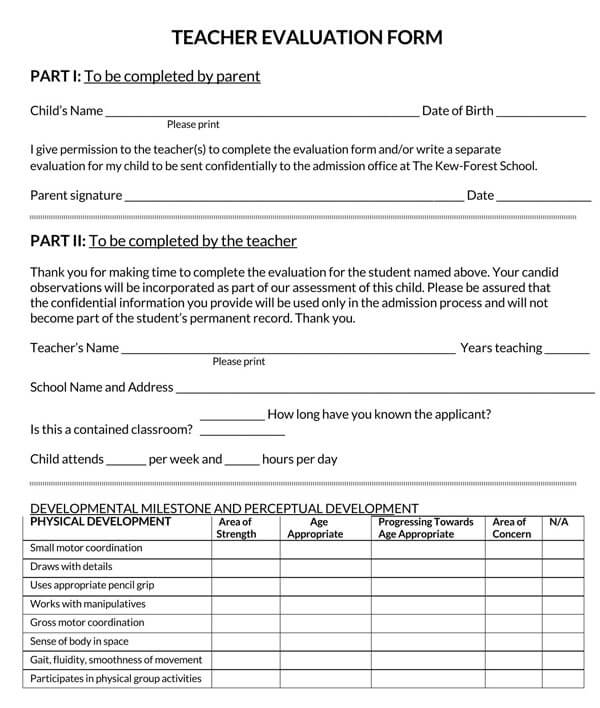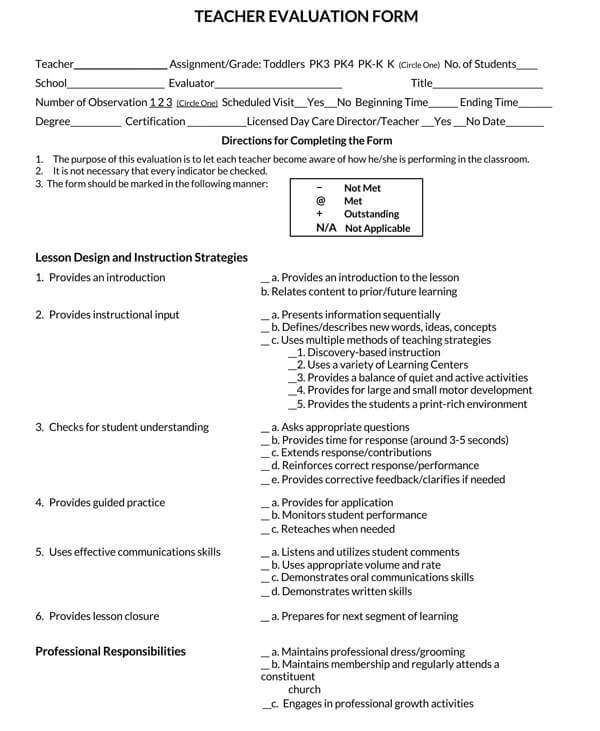Teaching evaluation is very important- both to the teachers and those holding them accountable. A well-defined teacher evaluation model will not help you identify the strengths and weaknesses of each individual teacher working under your management but also ensure that the students are getting a quality education. But how can one effectively measure the performance of each individual teacher? And what should be done with the results that they obtain from the evaluation?
This article will help you understand what teaching evaluation is, how you can measure each individual teacher’s performance, and what you should do with your results. We will also be providing you with free evaluation forms to help you when carrying out an evaluation.
What is Teaching Evaluation?
Teaching evaluation refers to a schools’ formal process to review and rate their teachers’ performance and classroom effectiveness. The findings obtained from these evaluations are then used to provide feedback to the teachers and guide their professional development.
Ideally, teaching evaluation helps you to;
- Make informed decisions about a teacher’s performance and effectiveness in class
- Give them constructive feedback geared at helping them develop their professional skills.
Why Evaluate Teaching?
In all walks of life, evaluation takes place in many different forms. It is through evaluation that we get to distinguish between good and bad.
There are various reasons why we should evaluate teachers, including:
- Teaching evaluation helps one to understand if the teachers are clear about their instructional goals
- Teaching evaluation helps one to make informed decisions about an individual teacher’s performance and how effective they are in class
- Teaching evaluation emphasizes the wide personality changes and major objectives of an educational program. Therefore, it includes not only subject-matter achievements but also interests, ideas, attitudes, ways of thinking, work habits, and personal and social adaptability.
5 Steps to Conduct Meaningful Teaching Evaluation
Customarily, teacher evaluation is often conducted by the principal, head of the department, or a teacher evaluator who observes how the teacher handles a given class with the aid of an evaluation checklist. Besides classroom handling, the evaluator also assesses active participation in class and engagement from both the students and the teachers.
As an evaluator, you want to ensure that your evaluation is a success by covering all the bases. To do so effectively, here are 5 steps that you should consider during your evaluation to help make it a success.
Step 1: Be the right evaluator: Make sure that you are equipped with everything before starting your evaluation. Take your time to learn and understand the key areas that you should focus on in your evaluation. Understanding the main areas will help you conduct a more effective evaluation.
Step 2: Engage all teacher leaders: Do not assume that you know everything. Engage all the teacher leaders as they have a better understanding of the areas you are looking to cover in your evaluation. Taking your time to engage them will also show the other teachers that the exercise you are conducting is very important, and they should purpose to see it through.
Step 3: Look beyond just observing: Don’t just observe what the teachers are doing in class during your evaluation. Focus on other areas such as their relationship with the students, student reaction and participation during their session, eloquence, and other key areas that directly or indirectly affect them.
Step 4: Reflect with the teacher: This step is particularly very important- this is where you get to hear from the teacher’s perspective and gauge what you have already observed during your evaluation. Set aside some of your time to sit and talk to the teacher after your evaluation. When reflecting with the teacher, make sure to focus on specific examples, ask them about their daily routines, how you assessed their effectiveness, and the strategies you would like to be implemented as appropriate.
Step 5: Share Best Practices: Share some of the best practices that you believe the teacher should implement. Also, provide them with constructive criticism to help them understand some of the areas they should improve on and what they should do to make learning more convenient. Focus more on some of the areas that you believe they could do better, help them understand their challenges, and give them some tips on overcoming those challenges better.
Why Should Students Take Part In the Evaluation?
Students taking part in teaching evaluation offer great insight into the teachers’ current effectiveness. When student evaluation of the teachers is done regularly, the quality of the education experience is more likely to improve for both the students and the teacher.
Here are some of the reasons why students should be allowed to take part in the evaluation:
- They can guide the teachers toward providing educational experiences that they genuinely enjoy
- The students can better highlight a teacher’s positive or negative traits, which can fire the teacher’s enthusiasm.
- The teachers will be less likely to become relaxed in their work if they know that they will be evaluated
Important Factors to Consider During Teacher Evaluation
There are various factors that one should consider when conducting teacher evaluation, including:
Communication of high expectations of all students’ achievements: How effective is the teachers communicating to the students about what they expect of them.
Education and experience of the teacher: When conducting teacher evaluation, it is important to consider the teacher’s education and experience. What is their level of education? How many years of work experience do they have? Whether the classroom environment is conducive to learning and achievement at high levels the teacher’s ability to interact with the students positively
Effective use of student assessment: to drive instructional planning the teacher’s ability to distinctively differentiate instructional techniques to reach and teach linguistically and culturally diverse students with learning and behavioral challenges How effective the teachers communicate with their colleagues, the students, and parents.
The teacher’s participation in high-quality professional learning: Are the teachers enrolled in any professional learning to boost their productivity. How will such courses impact their teaching?
Why Has Teacher-Performance Evaluation Become a Central Education Issue?
Teacher-performance evaluation has become crucial in the current times due to several reasons.
Such as:
- Teacher performance evaluation is the key to improving teacher quality. It provides meaningful insights into how one can recognize and reward great teachers so that we can learn from and replicate their success.
- It also helps us identify those teachers that need help so that they can get the extra training they need to be more effective
- It also helps in identifying those teachers that are not cut out for teaching before they take advantage of key benefits like lifetime job security that should be earned.
What is Effective Teaching?
Teaching is a very complex craft. In some ways, it is not possible to capture in a single page the complexity of what good teachers do. Yet nothing is more important to achieving our goals of success for every student than high-quality teaching.
Effective teaching is the ability to produce gains on students’ achievement scores, taking into account the baseline measure of the student’s prior attainment and other characteristics of the student’s intake.
Effective teachers go all-out to motivate and engage all their students in constructive learning rather than simply accepting that other students cannot engage and are destined to do poorly.
They believe that each student is capable of realizing success at school, and they do their best to find ways of making each student successful.
For teaching to be efficiently done by the teachers, there are certain qualities that they need to possess.
Some of such qualities are as follows:
- Personalize the learning for their students
- Communicate to their students what is expected from them and why
- Use techniques that have all their students working on tasks that engage and challenge them to achieve a set objective
- Teach their students meta-cognitive strategies and give them enough time to enable them to master them
- Accommodate the various needs of students in their class
- Understand that students learn best if the teachers acknowledge their background, culture, and abilities in the way they teach
- Are knowledgeable about the curriculum content and the strategies for teaching it effectively
- Understand that each student learns best when presented with new material in a way that enables them to personally connect it to what they already understand and know how to do
- Understand that students develop at different rates
- Are clear about instructional goals
Download Free Teaching Evaluation Templates
If you are looking for a teacher’s evaluation form, here are free templates that you can download and use for your convenience. Simply choose one that suits you best, download, customize it, and you are good to go!
FAQs
Teacher evaluation is critical in ensuring that the students get the most out of their schooling years. With a detailed evaluation, we can weed out those teachers who are not cut out for the profession and make the necessary changes to help those still lagging in their teaching. We can also identify those who are doing well in their area and employ their strategies to ensure that we give the best education to the students.
